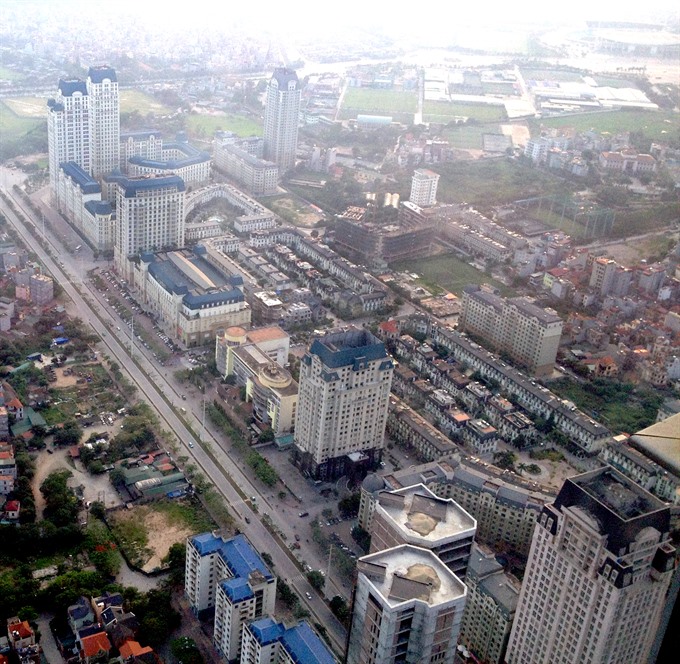 Society
Society

Service fee at residential buildings in Hà Nội, ranging from VNĐ700 (3 cents) to VNĐ16,500 (72 cents) per a square metre, regulated under the capital’s newly-issued decision, is believed to fail to match the reality.
 |
| The Mỹ Đình residential quarter in Hà Nội. The service fee in residential buildings, newly issued by the capital People’s Committee is believed to not match to the reality. — VNS Photo Trương Vị |
HÀ NỘI — Service fees at residential buildings in Hà Nội, ranging from VNĐ700 (3 US cents) to VNĐ16,500 (72 cents) per square metre, under the capital’s newly-issued decision are thought to be unrealistic.
The decision, approved by vice chairman of the capital People’s Committee Nguyễn Doãn Toản late last week, said that the service fee was VNĐ700-5,000 (3–22 cents) per square metre in a building without an elevator and VNĐ1,200-16,500 (5-72 cents) per square metre in a building with elevators.
Service fees exclude fees for swimming pools, saunas, cable television and internet, the decision said.
Nguyễn Thanh Hùng, deputy head of the Việt Nam Building Management Association, told the Thanh Niên (Young People) newspaper that the range for the service fee was not “close” to the current fees in local residential buildings.
In reality, a service fee of VNĐ8,000 (35 cents) per square metre was often applied in luxurious residential buildings in Hà Nội, he said.
For some residential buildings, fees of VNĐ10,000 (44 cents) per square metre had included fees for swimming pool or gym centre, he said.
According to Hùng, only a few residential buildings collected service fees above VNĐ15,000 (66 cents) per square metre, while most buildings in the city collected service fees under VNĐ10,000 per square metre.
However, service fees were up to VNĐ20,000 (88 cents) per square metre in the Indochina Plaza Residential Building in Cầu Giấy District, but residents are willing to pay the fee because of the good service.
“The above examples show the service fees the city issued does not match with reality and is unnecessary,” he said.
Agreeing with Hùng, a real estate expert said the city administration should use the list of residential buildings classified by the Ministry of Construction before issuing service fees.
This would make the service fees closer to the reality, he said.
In response to the complaints, a representative from the construction ministry said the issuing of service fees at residential buildings in Hà Nội and other localities came after several residential buildings in Hà Nội overcharged, prompting complaints from residents.
Therefore, the administration regulated the highest service fee to fix the problem, he said.
Based on the regulated service fee, managers of residential buildings and residents could decide a suitable fee for both sides, he said. — VNS









